Top Therapist Branding Tips for Success in 2025
Looking to grow your therapy practice and make meaningful connections with clients? Effective therapist branding can help you build trust, attract clients, and differentiate yourself. In this article, we’ll cover key strategies to enhance your brand and grow your practice.
The Importance of Therapist Branding
Therapist branding is vital as it differentiates therapists in a crowded market, thereby enhancing client trust and rapport. Effective branding for therapists promises clients the quality and type of service they can expect, fostering trust and a sense of comfort among brands. A good therapist can significantly contribute to this process.
Creating a consistent client experience is one of the most powerful ways to shape how people see your practice. When every touchpoint feels aligned, your website, emails, sessions, and even your social media, it reassures potential clients that you’re thoughtful, reliable, and professional.
This kind of consistency helps your brand stand out in a crowded space. It not only builds trust but also makes it easier for clients to connect with you and choose you. A strong, trustworthy brand lays the foundation for attracting more of the right people and building a reputation that opens new doors for growth.
Creating a Unique Brand Identity
Creating a unique brand identity is the cornerstone of private practice branding. Your brand reflects your unique values, strengths, and personality to effectively differentiate you from other therapists.
This uniqueness can be showcased through:
Imagery
Language
Design
Stories
Showcasing your brand personality strengthens your overall brand and business strategy. A well-crafted mission statement that reflects your core values and the impact you aim to have on clients is crucial in this process.
Cohesive branding involves aligning your logo, images, language, and tone to ensure authenticity. Effective branding goes beyond just a logo; it encompasses a comprehensive, coherent, and authentic image. This approach not only makes therapists more relatable and approachable but also enhances client connections.
Building Trust with Potential Clients
Effective branding is one of the most powerful tools therapists have for building trust with potential clients. It’s not just about looking polished, it’s about clearly communicating who you are, how you work, and the values that drive your practice.
When your brand messaging feels authentic and aligned with your personality, it gives clients a sense of what to expect. That clarity creates confidence. It reassures people that they’re making the right choice, which is especially important when they’re seeking support for something personal and vulnerable.
Visual consistency also plays a big part in how clients perceive you. Using the same colours, fonts, logo, and design style across your website, social media, emails, and printed materials helps your practice feel grounded and professional. That kind of alignment builds brand recognition, and more importantly, it creates a sense of reliability.
But branding isn’t just about the visuals. It’s about the full experience. Every interaction, whether it’s your contact form, an initial consultation call, or a follow-up email, should reflect your brand’s tone and values. This consistency across touchpoints reinforces your professionalism, builds rapport, and encourages clients to return and refer others.
In short, consistent, thoughtful branding builds familiarity. And when people feel like they know you and what you stand for, trust naturally follows. That trust becomes the foundation for lasting client relationships and a thriving practice.
Enhancing Practice Growth Through Branding
The ultimate goal of creating a professional brand for therapists is to grow and scale their therapy practice and establish an online presence. Therapists often experience increased client inquiries after improving their branding, contributing to overall practice growth.
A strong brand fosters better client retention rates, ensuring that existing clients continue to choose the practice for their ongoing needs. With a robust brand foundation, therapists can facilitate the expansion of their practices, ultimately leading to more satisfied clients and increased referrals.
Defining Your Therapy Practice’s Brand
Defining your therapy practice’s brand involves a deep dive into your core values, mission, and unique value proposition. Establishing brand identity helps create a meaningful mission statement and unique value proposition. Identifying a niche in the therapy practice establishes a secure core for branding and success.
Understanding the target audience is critical for tailoring branding elements to resonate with specific groups. Gathering insights through market research, surveys, and feedback allows therapists to create client personas, visualising ideal clients and tailoring services accordingly.
Identifying Core Values
Identifying core values is an essential part of defining a therapy practice’s brand. Core values guide the messaging and interactions therapists have with their clients. Effective brand messaging is shaped by these core values, ensuring alignment with the practice’s mission.
Aligning colour schemes with the core values of the practice helps create a cohesive brand image. Therapists should aim to identify 5-6 core values that represent their practice.
Crafting a Unique Value Proposition
Crafting a unique value proposition (UVP) is essential for drawing the right clients to your therapy practice. Your UVP should highlight what makes your services different, whether that’s your therapeutic approach, qualifications, niche expertise, or specialised techniques. It’s your chance to show what sets you apart.
Client feedback can be incredibly helpful in shaping your UVP. Pay attention to what past clients valued most, this can reveal the core strengths that make your practice shine.
Including your niche in your practice name can also help clarify your focus and attract clients who are actively seeking that expertise. And if your name is difficult to remember or pronounce, consider simplifying it to make a stronger, more accessible first impression.
Developing a Mission Statement
Developing a mission statement plays a vital role in defining your therapy practice’s purpose and direction. It should capture the essence of why you do what you do and the positive change you strive to create in your clients’ lives.
A strong mission statement reflects your values and the emotional or practical outcomes you aim to deliver. For example, a practice might focus on helping clients reconnect with themselves, build emotional resilience, or create more balanced and fulfilling lives. Whatever your focus, your mission should feel authentic and inspiring, both to you and to the people you serve.
Visual Elements of Therapist Branding
Visual elements are a vital part of private practice branding. They encompass elements like logos, colour schemes, typography, and graphic designs that together convey your practice’s message. Effective design can create a professional, soothing, and approachable feel that influences how potential clients perceive a therapy practice.
A therapist’s visual identity includes various elements such as a logo, colour psychology, font psychology, design aesthetics, imagery, and photography.
Choosing a Colour Palette
Choosing a colour palette is a key step in shaping the visual identity of your therapy practice. The colours you select should evoke the right emotions and align with what your audience expects and needs.
To create a cohesive brand image, it’s important to consider not just colour psychology, but also font psychology and overall design aesthetics. When combined thoughtfully, these elements build a sense of harmony and professionalism.
Designing a Professional Logo
Designing a professional logo is essential for visually representing your therapy practice and reinforcing your brand identity. A well-designed logo reflects the quality and tone of your services.
Take Alex Greene’s logo, for instance—it uses clean lines and a minimalistic design to reflect a modern, approachable, and inclusive practice. This not only makes a strong visual impression but also aligns with Alex’s core values of clarity and openness.
Similarly, Think Nap Sleep’s brand identity uses soft pastel colours and playful, soothing shapes in both its logo and visual elements to appeal to children and parents alike, while maintaining professional credibility. This thoughtful design helps the brand stand out in a niche mental health space.
Consistency in Visual Identity
Consistency in visual identity is crucial for building trust and reinforcing brand recognition among potential clients. Visual identity encompasses all visual elements that represent the brand, including logos, colors, and design aesthetics. Maintaining uniformity in these elements creates a cohesive and professional brand image that resonates with clients.
Building an Online Presence
Building a strong online presence is essential for therapists as it forms the first impression for potential clients considering therapy services. Website design, blog content, social media, brochures, and videos contribute significantly to a therapist’s brand.
Content marketing enhances therapists’ visibility by allowing them to share valuable insights and connect with a broader audience. Offering free resources like worksheets or webinars can serve as effective lead magnets, attracting potential clients to your practice.
Developing a Professional Website
Developing a professional website is a vital part of building a strong online presence for your therapy practice. It’s often the first impression potential clients will have of you, so it needs to feel welcoming, trustworthy, and aligned with your brand.
A well-crafted website not only boosts your credibility but also helps you stand out in a competitive space. Key features to focus on include a clean, custom design, fast loading times, mobile responsiveness, and intuitive interactivity that makes browsing effortless.
Your site should clearly explain who you help and how, using friendly, straightforward language. Strong calls-to-action guide visitors towards taking the next step, whether that’s booking a consultation or learning more about your services.
Leveraging SEO for Better Visibility
Using SEO effectively is essential for helping potential clients discover your therapy practice online. Start by weaving local keywords naturally into your website content to boost visibility in local search results. Building backlinks from reputable sites improves your website’s authority and helps with local seo search engine rankings.
Regularly updating blog content can significantly improve search engine rankings, making it easier for potential clients to find your therapy practice online.
Social Media Strategies
Effective social media strategies are essential for connecting with your audience and building a strong online reputation. Choose social media platforms based on where your target audience is most active. Engaging content, such as mental health tips, behind-the-scenes glimpses, and personal stories, helps build a connection with your audience.
Collaborative efforts, such as co-hosting webinars, can significantly increase visibility and engagement.
Content Marketing for Therapists
Content marketing is a powerful tool for therapists to showcase their expertise, provide value, and attract clients. Tactics included in content marketing consist of blogging, creating lead magnets, and engaging in email marketing. These strategies not only enhance your online presence but also help establish you as a trusted professional in your field.
Blogging for Client Attraction
Blogging is a powerful way to connect with potential clients and position yourself as a trusted expert. By sharing insights on topics like managing anxiety, understanding the benefits of cognitive behavioural therapy, or tips for choosing the right therapist, you provide real value and support before the first session even begins.
To maximise your reach, share your blog posts on social media and in your email newsletters. You can also explore guest blogging opportunities to tap into new audiences and build credibility within your niche.
Utilising Lead Magnets
Lead magnets are free resources offered in exchange for contact information, helping you build an email list. Examples include an eBook on mindfulness, a free consultation, or a self-care checklist.
These marketing tools are invaluable for nurturing leads with relevant content and ultimately converting them into clients.
Effective Email Marketing
Email marketing helps maintain contact with your audience and promotes your services. Engaging email campaigns keep your audience informed and connected to your practice. Focus on delivering value by sharing blog posts, offering exclusive content, and promoting your services.
Always respect regulations, obtain permission, and provide unsubscribe options.
Networking and Collaboration
Networking and collaboration are essential for enhancing your brand credibility and fostering growth opportunities. Establishing connections in your local community is important. It can result in valuable referrals, partnerships, and greater recognition online.
Local Networking Opportunities
Local networking is a meaningful way to build connections right in your community. It’s about creating genuine relationships with the people and professionals around you, those who may become trusted referral partners or future clients.
Consider attending local events, joining professional associations, or getting involved in community initiatives. These face-to-face interactions not only boost your visibility but also help establish your reputation as a friendly, approachable expert in your field. Over time, these connections can lead to valuable referrals, collaborative opportunities, and stronger recognition for your practice.
Online Networking Techniques
Therapists can use online networking to connect with healthcare professionals outside their immediate area. This also helps them reach potential clients beyond their local community. Make use of online forums and social media groups. You can also consider engaging with professional networking sites such as LinkedIn.
Share your expertise, ask insightful questions, and stay professional to engage effectively in online courses, showcasing your knowledge and showing interest.
Benefits of Professional Collaboration
Working with other professionals can increase your reach. It can also enhance your brand visibility. Joint webinars and guest blogging are two activities that encourage collaboration. Co-hosting events is another way to work with other therapists or professionals.
Successful collaborations are beneficial for all parties involved.
Using Testimonials and Case Studies
Using testimonials and case studies is an effective way to showcase the value and effectiveness of your therapy services. Client reviews on platforms like Google Business Profile, Yelp, and social media can significantly influence potential client decisions.
Collecting Client Testimonials
Collecting client testimonials is essential for attracting potential clients. Authenticity is a key factor that potential patients look for when selecting a healthcare services provider. Additionally, social proof plays an important role in their decision-making process.
Ensure you anonymise testimonials to protect client privacy and obtain written consent before usage.
Creating Impactful Case Studies
Creating impactful case studies involves obtaining explicit consent from clients and respecting client confidentiality that was created.
Highlight both the therapeutic approach used and the specific outcomes achieved to showcase your expertise and effectiveness.
Sharing Success Stories
Sharing success stories provides evidence of your expertise and effectiveness, enhancing credibility and trust. Patient video testimonials often lead to high levels of engagement and better conversion rates. These stories can significantly boost your brand by instilling confidence in potential clients.
Paid Advertising Strategies
Paid advertising strategies, such as Google Ads, social media advertising, and retargeting campaigns, can help increase visibility and attract new clients. These targeted marketing strategies are designed to reach your ideal audience and enhance your marketing efforts.
Google Ads for Therapists
Google Ads allows therapists to advertise on Google’s search results pages, reaching clients actively searching for therapy services in their area. This platform can help you connect with potential clients and stand out among other therapists.
Social Media Advertising
Targeted ads on social media can help therapists connect with potential clients based on specific demographics and interests. By leveraging market research and tailored marketing materials, you can effectively reach your target audience and enhance your online reputation.
Retargeting Campaigns
Retargeting campaigns focus on individuals who have previously engaged with your website, increasing the chances of conversion. Platforms usable for retargeting include Google Ads, Facebook, and LinkedIn.
Monitoring and adjusting these campaigns is necessary to achieve optimal results.
Continuous Improvement and Adaptation
Great branding doesn’t stand still; it evolves with you. Staying relevant in the therapy space means regularly reviewing your brand and making thoughtful updates based on client feedback, performance insights, and changing trends.
Think of your brand as a living part of your practice. As you grow, your messaging, visuals, and client experience should grow with you, keeping everything aligned, fresh, and reflective of the value you provide.
Monitoring Brand Performance
Monitoring brand performance is essential for determining the effectiveness of your strategies. It also helps in pinpointing areas that need improvement. Track performance through website and social media analytics, client acquisition and retention rates, and marketing campaign effectiveness.
Adjusting branding strategies based on these metrics directs future decisions and enhances focused marketing efforts.
Adapting Based on Feedback
Adapting based on client feedback can significantly refine and improve your branding strategies. Utilise client surveys to gather insights and regularly revisit your branding efforts to stay relevant and effective.
Incorporating feedback ensures that your practice better meets the needs of your clients.
Staying Current with Trends
Staying current with industry trends and topics relevant is crucial for maintaining a competitive edge and appealing to potential clients. Regular updates on trends help adapt your practices to meet client needs and make your brand more appealing.
Seeking Professional Help
Seeking professional help for branding can provide expert guidance, save time, and enhance effectiveness. Therapists have the option to engage a branding consultant or a marketing agency for in-depth assistance.
Hiring a Branding Consultant
Hiring a branding consultant can provide tailored strategies to effectively position you in the marketplace. A consultant can guide you through the branding process, including brand identity development, enhancing your visibility and credibility.
If you're looking to enhance your therapist branding and need professional assistance, consider reaching out to Visuable. As experts in branding and digital marketing, we offer tailored solutions to help your therapy practice stand out and attract more clients. Whether you need help with brand identity, website design, or marketing strategies, Visuable's team can provide the guidance and support you need to achieve your branding goals. Visit our enquiry page to learn more and get started on growing your therapy practice's brand.
Engaging a Marketing Agency
Engaging a marketing agency can lead to increased client acquisition and retention. Agencies can save you time by ensuring marketing efforts are carried out professionally and effectively, aligning with your branding goals.
Knowing When to Delegate
Knowing when to delegate tasks is crucial for managing the diverse responsibilities of a therapy practice. Effective delegation allows you to focus on providing quality client care while reducing stress and workload.
Summary
Branding for therapists in 2025 is a multifaceted endeavour that requires careful consideration of various elements, from defining your core values and mission to building a strong online presence and leveraging paid advertising strategies. By following these tips, therapists can create a unique and compelling brand that attracts the right clients, builds trust, and fosters practice growth.
As you embark on your branding journey, remember that continuous improvement and adaptation are key to staying relevant and effective. Whether you’re seeking professional help or taking a DIY approach, the strategies outlined in this guide will help you establish a strong, recognisable brand that stands out in the competitive landscape of therapy.
Frequently Asked Questions
Why is branding important for therapists?
Branding is essential for therapists because it sets you apart in a competitive field and builds trust with potential clients. By establishing a strong brand, you can attract the right clients and foster the growth of your practice.
How can I create a unique brand identity for my therapy practice?
To create a unique brand identity for your therapy practice, reflect your distinct values and strengths through cohesive imagery, language, and design. Let your personality shine, and you'll connect with those who need your support!
What are the key elements of a professional website for therapists?
To create an effective therapist website, focus on customisation, fast loading times, mobile compatibility, engaging content, and clear calls-to-action that resonate with your potential clients. This strong foundation will help you connect and thrive in your practice!
How can I use social media to enhance my therapy practice's brand?
To enhance your therapy practice's brand, focus on posting engaging content like mental health tips and personal stories on the social media platforms your audience frequents. Collaborating with other professionals can further boost your visibility and connection with potential clients.
When should I consider hiring a branding consultant or marketing agency?
If you're feeling overwhelmed by your branding efforts or need expert guidance, it's a smart move to hire a branding consultant or marketing agency like Visuable. This decision can save you time and significantly boost the effectiveness of your branding strategies.
Ready to Elevate Your Brand in 2025?
Your brand is your practice’s most powerful asset—make sure it reflects the impact you’re here to create. Whether you’re launching a new practice or rebranding an existing one, we’re here to help.
Book a free consultation today for personalised branding guidance, or explore our services to build a standout brand that attracts, connects, and grows with you.



































